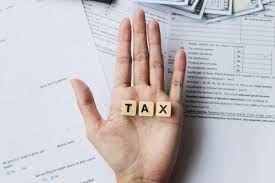What You Need to Know About Non-Dom Tax Status in the UK

Introduction
The non-domiciled (non-dom) tax status in the United Kingdom is a topic of significant importance, affecting thousands of individuals, particularly high-net-worth individuals, expatriates, and overseas investors. This status allows individuals to pay tax primarily on income and gains arising in the UK, rather than on their worldwide income. Understanding non-dom status is crucial, especially amid ongoing discussions regarding tax reforms and their implications for residency rules.
What is Non-Dom Status?
Non-dom status refers to individuals who are considered domiciled outside of the UK for tax purposes. This status can offer substantial tax benefits, including the ability to limit UK tax liability solely to income and gains that have a source in the UK. Originating from UK law, the concept of domicile is often misunderstood, and many non-doms may not be fully aware of the regulations surrounding it.
Recent Developments and Reforms
The UK government has announced several reforms in recent years aimed at tightening the regulations around non-dom status. In 2022, changes were implemented that require non-doms who have been living in the UK for over 15 years to pay UK tax on their worldwide income, even if it remains outside UK borders. These reforms are part of a broader effort to ensure tax fairness and reduce potential loopholes exploited by wealthy non-domiciled residents.
Implications for Taxpayers
The implications of non-dom status are significant for individuals and families planning their financial futures in the UK. High-net-worth individuals often use non-dom status as a means to minimise their tax liability, which has sparked criticism and debates about equity in the tax system. It’s estimated that there are about 90,000 people in the UK holding non-dom status, and the closure of certain loopholes may force individuals to reassess their tax strategies.
Conclusion
As the UK government continues to scrutinise the tax system, those with non-dom status need to remain informed about ongoing regulatory changes. Taxpayers considering non-dom status must evaluate the potential benefits against the evolving landscape of tax law. The decisions made by these individuals not only affect their financial health but also contribute to wider discussions about tax justice in the UK. As reforms progress, it will be vital for non-domiciled residents to engage with legal and tax professionals to navigate this complex area effectively.









